Commemorating the 135th birthday of President Ho Chi Minh (May 19, 1890 - May 19, 2025). Source: Department of Grassroots Culture, Ministry of Culture, Sports and Tourism.
Today, humanity has all the material and spiritual, economic and cultural, scientific and technological conditions to build a better world. However, humanity also needs to work together to solve major challenges: Environmental degradation due to the destruction of the natural environment not only does not decrease but also increases, the polarization of rich and poor within each country as well as on a global scale is increasingly fierce, bloody religious and ethnic conflicts still occur every day, poverty and transnational/international crime, high-tech crime are increasingly developing in complexity, non-traditional security issues are increasingly threatening each country as well as regions... The increase in hatred in many places is requiring humanity to have common political platforms and actions, along with a vision of peaceful coexistence between people, between nations, between ethnic or religious communities. The soul of that civilized vision is tolerance. The practice of tolerance is an urgent requirement for today's world to be more humane in the face of global issues. Tolerance does not solve all problems, but it can help us find ways to handle problems in a better direction, with an open and progressive spirit. The spirit of tolerance can help humanity open the paths to solidarity, peace and development.
National liberation hero and cultural celebrity Ho Chi Minh is the noble embodiment of the Vietnamese spirit of tolerance and humanity. Ho Chi Minh always persevered in finding a “peaceful way”, finding a “peaceful path” to bring peace to the people and the country of Vietnam with full content of national rights. He also extended his arms to connect the struggle to protect the sacred independence and freedom of the Vietnamese people with the struggle of humanity to protect humanistic values, protect peace and move towards a future of mutual prosperity.
La tolérance - Tolerance from the original to the modern sense
The term la tolérance - tolerance appeared after the religious wars in Europe in the 15th century. The word tolerance originally meant that Christians and Protestants tolerated and accepted each other. Tolerance was the result of a socio-political evolution when Christianity was forced to accept Protestantism. A long time before that, the Catholic Church advocated intolerance and fiercely persecuted those they considered heretics and heretics.
The word la tolérance in Vietnamese Catholic history books is translated as Tha cam - with the meaning of referring to the concessions of the Roman church to the Eastern churches in terms of rituals and liturgical activities with a religion imported from the West. In Vietnam, this term was probably first used by Bishop Pigneaux de Béhaine (Bá Đa Lộc) when he intended to Vietnamize Christianity to make it more suitable for Vietnam[1].
From a narrow sense in the religious context, over the centuries, the concept of Tolérance has been expanded in many social dimensions. From a concept understood from an ethical and psychological perspective when discussing humanism - Tolerance is understood as an understanding Tolerance is a modern term with a connotation that goes far beyond its original meaning. The Robert Dictionary (1964) defined Tolerance as: "The acceptance of others in a way of thinking or acting that is different from what one has affirmed in oneself, is the respect for the freedom of others in terms of religion, philosophical and political views" [2]. Nowadays, people often talk about the Culture of Tolerance with a broad connotation, related to many areas of culture, politics, ideology, religion - belief, ethics, lifestyle, values belonging to the qualities, personality, character... of an individual or a social community. It is an attitude of respect, a generous view of values that are different from one's own (in terms of ethnicity, religion, political views, personal qualities, etc.), a respect for the beliefs of others that are different from one's own while still preserving and strengthening one's own beliefs. The culture of tolerance and cultural tolerance express the spirit of opposing all discrimination or imposing on others values that are alien to their traditions and identity. Tolerance means an attitude of non-arrogance in relationships between generations, between genders, between individuals, between communities and between humans and nature. Tolerance does not require each person to give up his or her beliefs, but at the same time should not discriminate against and exclude the beliefs of others. Since the 18th century, Voltaire has expressed the spirit of cultural tolerance in a simple way: "I do not agree with what you say, but I will defend to the end your right to say it". Tolerance is a beautiful expression of the spirit of democracy, of freedom of thought and culture in a civilized society.
Vietnamese humanitarian spirit
Vietnam's geopolitical and geocultural position is at the intersection of many cultures. First of all, the two major cultures in the East are Chinese culture and Indian culture, as well as the cultures of the Southeast Asian islands and later Christianity along with Western culture. The major doctrines and religions: Buddhism, Confucianism, Taoism, Christianity... after the process of introduction all found a place in the heart of the national culture. The positive and suitable points of the imported cultural streams were selected, absorbed, exploited and used by the Vietnamese people on the basis of the indigenous traditional culture. Many generations have received the influence of imported cultural elements in many fields: ideology, religion, literature, art - dance, music, performance, sculpture, architecture... These influences are refracted through the depth of traditional culture, serving the struggle to build and defend the country, creating/adding diversity and richness to Vietnamese culture. One of the characteristics of Vietnamese culture that scholars often mention is its dynamism, its easy acceptance of different elements, and its ability to live together and develop together. In Vietnam, there has never been a war between ethnic groups or religious wars as has happened in many other places.
The Vietnamese people have a long-standing tradition of tolerance, kindness, solidarity, mutual assistance, generosity, and forbearance. In times of trouble, the older sister helps the younger sister up . In times of difficulty, the healthier one helps the weaker one ... That tradition has been imprinted in our feelings and thoughts, and has entered folk songs and proverbs:
Love others as you love yourself
"Hit the person who runs away, don't hit the person who runs back"
"Gourd, please love the squash too."
Although different species but on the same trellis" etc.
We “use great justice to defeat cruelty, use benevolence to replace violence” (Nguyen Trai). Even with foreign invaders, when they no longer have the necessary conditions, forces, and opportunities to maintain their aggressive ambitions, the Vietnamese people still generously “open their hearts to love life” and forgive the invaders to return to their homeland in peace to avoid further war between the two nations.
“Thinking about the long-term plan of the state
Forgive the one who surrendered one hundred thousand soldiers
Repair peace between the two countries
"End war forever"[3] etc.
In 1428, General Vuong Thong and one hundred thousand remaining Ming troops returned to their country in that situation.
The lasting values that create the Vietnamese cultural identity: patriotism, indomitable spirit against foreign invaders; solidarity, love connecting individuals - families - villages - Fatherland; compassion, tolerance, respect for loyalty; diligence, creativity in work, simplicity in lifestyle... all converge and shine in the national liberation hero, cultural celebrity Ho Chi Minh. |
Ho Chi Minh and the Culture of Tolerance
Prime Minister Pham Van Dong commented in the book President Ho - the image of the nation : "President Ho is a Vietnamese, more Vietnamese than any other Vietnamese" [4]. But in this "Vietnamese" there is always an attitude of respecting all cultural values of humanity, constantly open to accepting positive and progressive elements to enrich Vietnamese culture. He highly appreciated Confucius, Jesus, Sun Yat-sen, Marx and "tried to be their little student" [5]. The revolutionary path Ho Chi Minh found for the Vietnamese people is the path from national independence to a modern "universal world". That is a world of peace and development. That path has a logic similar to the logic of harmonious development between individuals, nations and humanity, with peaceful coexistence between political regimes, with mutual respect between cultures.
The struggle to regain independence of the Vietnamese people requires solidarity and the gathering of forces of the vast majority of the people to complete revolutionary tasks whose ultimate destination and ultimate goal is the interests of the nation and the happiness of the people. The first condition to achieve great solidarity is to have a spirit of tolerance and to accept things that are different from oneself. With a broad and wise spirit of tolerance, Ho Chi Minh succeeded in uniting the entire people into a solid block to fight for victory. In the context of Vietnam being a multi-ethnic and multi-religious country, Ho Chi Minh successfully resolved the relationship between the common and the individual, between similarities and differences of many communities on the basis of respecting their values. When implementing solidarity, he always reminded us to "have a flexible and clever attitude", "must eliminate all prejudices", "must know how to compromise", "must know how to respect people's personalities", etc. Even for those who have gone astray, he still advised: “Five fingers also have short and long fingers... For those who have gone astray, we must use affection to influence them”[6], because “Our nation is a nation rich in sympathy and charity”[7]. Ho Chi Minh always found and emphasized similarities, “common denominators” that can bring interlocutors closer together, accept compromise and concessions to find a common voice, to be able to go on the same path, even just a part of the path towards a common goal while still maintaining their own distinctive characteristics. Those common points are universal values. They are ethical principles, humanity, goodness, love of freedom, the desire for national independence... Ho Chi Minh made a general comment: “Although the customs of each nation are different, there is one thing that all nations have in common. That is, all nations love the good and hate the evil”[8].
With the same motto of finding commonalities as a basis for acquiring values, for harmonization, for developing friendship, Ho Chi Minh was the one who extended the friendly hand of the Vietnamese people to other peoples and other cultures. He commented: “Don’t Confucius, Jesus, Sun Yat-sen, and Marx have the same advantages? They all want to seek happiness for everyone, to seek welfare for society. If they were still alive today, if they gathered together, I believe they would live together perfectly as close friends”[9]. With the opponent, his arguments were also very convincing: “You love your France and want its independence. But we must also be allowed to love our country and want its independence... What you consider an ideal must also be our ideal”[10]. The resistance of the Vietnamese people has gathered the broad support of progressive humanity. A broad front of people around the world has been formed to support the fight of the Vietnamese people, including the French and American people, because our just fight has profound humanistic meanings, protecting sacred values in the conscience of humanity.
With a spirit of broad tolerance, sincerity, openness and human warmth, with a leisurely, close, humorous and intelligent style, Ho Chi Minh exuded a great influence that "All those who came to President Ho never said goodbye to him. I understood why a leader who founded the Communist Party of Vietnam could still attract all other elements in society to stand around him to do great things for the people and the country" - as Venerable Thich Don Hau said[11]
Ho Chi Minh and Cultural Tolerance
The national factor creates the identity of culture. The respect, preservation, inheritance and promotion of the good values of national culture were always emphasized by Ho Chi Minh, but Ho Chi Minh did not exaggerate the national factor. He went from national culture to human culture. Always caring about preserving and promoting national identity, he also fought against the risk of conservatism and closed-mindedness. He believed: "The cultures of other nations must be studied comprehensively, only in that case can we absorb more for our own culture" [12]. When determining the development path for the new Vietnamese culture, he stated: "At the same time, develop the good traditions of national culture and absorb the new things of the world's progressive culture to build a Vietnamese culture with national, scientific and popular characteristics" [13].
Ho Chi Minh's cultural thinking is always open, it is foreign and against cultural discrimination. In Ho Chi Minh there is always an attitude of respecting human cultural values, constantly opening up to receive positive, progressive and humane elements of the world to enrich Vietnamese culture, exchange and dialogue to achieve harmony and development. This is the spirit of cultural tolerance of Ho Chi Minh . This spirit of tolerance originates from the tradition of humanity and tolerance, from the characteristics of Vietnamese culture: flexible, dynamic, accepting new elements, which was inherited and enhanced by Ho Chi Minh. The Vietnamese people resisted the rule of French colonialism, but did not oppose French cultural values, opposed the invading American imperialists but still respected American cultural and revolutionary traditions. This has been affirmed by many Ho Chi Minh researchers.
Petghidapnhơ wrote in the Dien Dan (US) newspaper: "Uncle Ho Chi Minh was a person who loved French culture while fighting against French colonialism, a person who respected American revolutionary traditions when America destroyed his country" ( Nhan Dan Newspaper , May 15, 1985) . Researcher David Halberstam (USA) wrote: "Uncle Ho Chi Minh not only liberated his country, changed the direction of colonial regimes in Asia and Africa, but he also did something more remarkable: using the culture and soul of the enemy to win" ( David Halberstam - Ho - Random house, New York, 1970 - Quoted from the book Ho Chi Minh - Outstanding Cultural Man - National Political Publishing House, Hanoi, 1999, p. 123) . Dr. M. Admad, Director of UNESCO Asia Pacific region commented: “Ho Chi Minh has succeeded in linking many cultural nuances into a single Vietnamese culture. He did this thanks to his deep understanding and respect for different cultural characteristics” (M. Admad: Ho Chi Minh, a great figure who devoted his whole life to the mission of freedom and independence - International Conference on President Ho Chi Minh - UNESCO and UBKHXHVN, Hanoi, 1990, p. 37) . |
Affirming national identity and absorbing the quintessence of human culture is a consistent viewpoint in Ho Chi Minh's thought on culture. This viewpoint is placed in the inevitable trend of national cultures in the struggle to assert their values, so as not to be "dissolved" when integrating and integrating to avoid isolation from the civilization that is globalizing every day. Absorbing new and progressive things of world culture is in accordance with the law of cultural development, between cultures there is always exchange and mutual influence. Always caring about preserving and promoting national identity, he also fought against the risk of conservatism and isolation. Ho Chi Minh had a dialectical viewpoint between national character and human character in the orientation of building a new Vietnamese culture. Ho Chi Minh brought the spirit of the Vietnamese people wishing to exchange and dialogue to achieve harmony, towards integration, towards a peaceful future and together to develop.
Ho Chi Minh's example of cultural tolerance is admired and honored by humanity. The spirit of cultural tolerance in his thought, imbued with Ho Chi Minh's humanism, has contributed many values to the new Vietnamese culture as well as to human culture. |
Ho Chi Minh's path of peace
Based on the universal principle of human rights recognized by humanity, in the Declaration of Independence on September 2, 1945, giving birth to the Democratic Republic of Vietnam, President Ho Chi Minh raised a new principle of basic national rights: "All peoples in the world are born equal, every nation has the right to live, the right to happiness and the right to freedom" [14]. On October 3, 1945, just one month after the birth of the new Vietnam , President Ho Chi Minh issued a Communiqué on the foreign policy of the Provisional Government of the Democratic Republic of Vietnam, which highlighted the goal: Building world peace.
When we were forced to die for the Fatherland , President Ho Chi Minh still affirmed to the French people: "We, the Government and people of Vietnam, are determined to fight for independence and national unification, but are ready to cooperate amicably with the French people"; "We love you and want to be honest with you in the French Union because we share the same ideal: freedom, equality and independence" [15]. When the long and arduous resistance war had just ended, in 1955, President Ho Chi Minh affirmed: "The Vietnamese people firmly believe that all conflicts in the world can be resolved peacefully; firmly believe that countries with different social regimes and different forms of consciousness can all live together peacefully" [16]. President Ho Chi Minh always expressed his view: “The Vietnamese people love peace extremely, because peace is needed to build the country, peace is needed to restore and expand the economy and culture, so that all people can enjoy freedom, happiness, warm clothes, and enough food”[17]. And “The aspiration of the Vietnamese people is to build a peaceful, unified, independent, democratic and prosperous Vietnam, with friendly and equal relations with all countries in the world”[18]. Also with the motto of finding similarities as a basis for accepting different and new values, for harmony and equality, he connected the friendly hands of the Vietnamese people to hold the hands of peace of other peoples and other cultures. With/by the Fire-Peace Path , Ho Chi Minh promoted a tolerant view, accepting the diversity of political trends and social regimes among countries, opposing war, so that nations can develop friendship, increase mutual understanding, and expand cooperation on the basis of mutual respect among nations, between the Vietnamese people and peoples of countries around the world.
In the context of international relations dominated by confrontation in the mid-20th century, Ho Chi Minh, representing the Vietnamese people, still raised his voice towards mutual acceptance of the diversity of political trends and social regimes among countries to save peace so that nations could be closer to each other, understand each other, and expand friendly cooperation between the Vietnamese people and peoples of countries around the world, especially with countries in the region, so that all could share peace and prosperity. Until the last lines left for posterity, on the basis of his strong belief in the final victory, in his Will he left the wish: "Our entire Party and people unite to strive to build a peaceful, unified, independent, democratic and prosperous Vietnam, and make a worthy contribution to the world revolutionary cause" [19].
After regaining and firmly defending national independence, the Vietnamese people continued to build Vietnam towards prosperity and progress: Developing the economy and culture, social security, improving the material and spiritual life of the people. From a country with a poor economy, suffering severe consequences from war, operating under centralized planning, being besieged and embargoed, Vietnam has gradually removed obstacles from thinking, proactively created a favorable international environment, mobilized external resources for innovation and socio-economic development. With the foreign policy of multilateralization and diversification, Vietnam strives to expand international relations, making the world better understand the country, people and potential for cooperation with Vietnam towards a stable future and sustainable development. Vietnam is developing openly under the motto "Vietnam is ready to be a friend, a reliable and responsible partner with all countries in the international community" and has achieved many achievements. President Ho Chi Minh also prepared those things for us with his vision from very early on in his peaceful path and spirit of cultural tolerance.
With/by the Path of Peace , Ho Chi Minh promoted a tolerant view, accepted the diversity of political trends and social regimes among countries, opposed war, cultivated peace so that peoples could be closer to each other, understand each other, and expand cooperation and friendship between the Vietnamese people and peoples of other countries in the world. |
The embodiment of a future culture
Ho Chi Minh is the embodiment of a future culture, a culture of peace, cooperation and sustainable development. “Through the warm voice of Nguyen Ai Quoc, we seem to hear tomorrow, to see the immense silence of world friendship”[20] - that is the profound and subtle comment that we are familiar with from journalist Oxip Mandenxtam when he first met Nguyen Ai Quoc more than 100 years ago.
The modern world is an “environment of economic and cultural symbiosis”. The rapprochement and interdependence of economies and cultures is an inevitable trend. Dialogue is called for instead of confrontation. Cooperation, equality, friendship and sharing of opportunities for mutual development based on international law are honored instead of violence, unfair competition and infringement of sovereignty. That is an irreversible progressive trend. In that trend, the Vietnamese people confidently continue on the “Path of Peace” that Ho Chi Minh chose and led in new conditions, with the spirit of cultural tolerance that has been expanded and enhanced./.
1. According to Do Quang Hung: Tolerance - From indulgence to tolerance - Xua & Nay Magazine, issue 17, July 1995, p. 10. 2. Nguyen Trai: Complete Works - Social Sciences Publishing House, 1976, p. 87 3. Pham Van Dong: Our Fatherland, our people, our career and the artist – Literature Publishing House, Hanoi, 1989, p. 425 . 4. Truong Niem Thuc: Ho Chi Minh's biography - Tam Lien Publishing House, Shanghai, 1949 - Quoted from Song Thanh: Ho Chi Minh - An outstanding cultural figure - National Political Publishing House, Hanoi, 1999, p. 91. 5. Ho Chi Minh: Complete Works - National Political Publishing House, Hanoi, 2011, vol. 4, pp. 280 - 281. 6. Ho Chi Minh: Complete Works, op. cit., vol. 4, p. 186. 8. Ho Chi Minh: Complete Works, op. cit., vol. 4, p. 397. 9. Truong Niem Thuc - Cited. 10. Ho Chi Minh: Complete Works, op. cit., vol. 4, p. 75. 11. Research on Ho Chi Minh's ideology - Ho Chi Minh Institute Publishing House, Hanoi, 1993, vol. 3, p. 112. 12 Uncle Ho with artists and writers - New Works Publishing House, Hanoi, 1985, p. 49. 13. Ho Chi Minh: Complete Works, op. cit., vol. 6, p. 173. 14. Ho Chi Minh: Complete Works, op. cit., vol. 4, p. 1. 15. Ho Chi Minh: Complete Works, op. cit., vol. 4, pp. 535 - 536. 16. Ho Chi Minh: Complete Works, op. cit., vol. 10, p. 12. 17. Ho Chi Minh: Complete Works, op. cit., vol. 9, p. 111. 18. Ho Chi Minh: Complete Works, op. cit., vol. 14, p. 354. 19. Ho Chi Minh: Complete Works, op. cit., vol. 15, p. 618. 20. Oxip Mandenxtam: Meeting an international communist soldier - Small Fire Magazine No. 39, December 1923 - Ho Chi Minh: Complete Works, op. cit. , vol. 1, p. 479. |
Associate Professor Hoang Van Hien, Dr. Nguyen Anh Thu, Hong Minh, Tuyet Loan, Vuong Anh
Source: https://vhtt.ninhbinh.gov.vn/vi/su-kien/nguoi-tieu-bieu-cho-van-hoa-khoan-dung-va-toa-sang-tinh-than-khoan-dung-van-hoa-1391.html


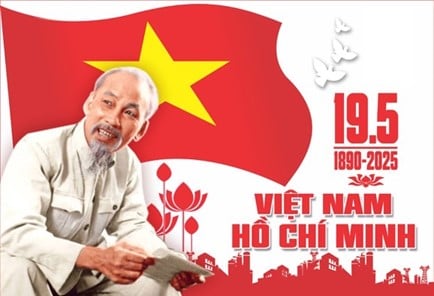
![[Photo] Students of Binh Minh Primary School enjoy the full moon festival, receiving the joys of childhood](https://vphoto.vietnam.vn/thumb/1200x675/vietnam/resource/IMAGE/2025/10/3/8cf8abef22fe4471be400a818912cb85)

![[Photo] Prime Minister Pham Minh Chinh chairs meeting to deploy overcoming consequences of storm No. 10](https://vphoto.vietnam.vn/thumb/1200x675/vietnam/resource/IMAGE/2025/10/3/544f420dcc844463898fcbef46247d16)





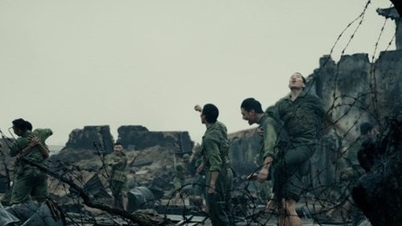

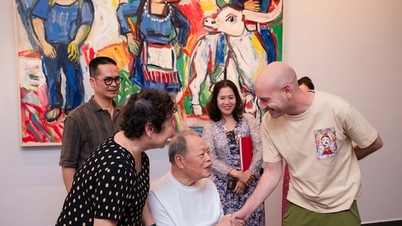


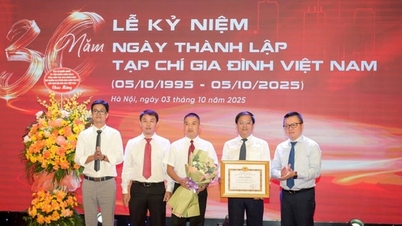
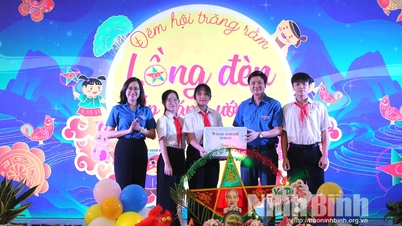





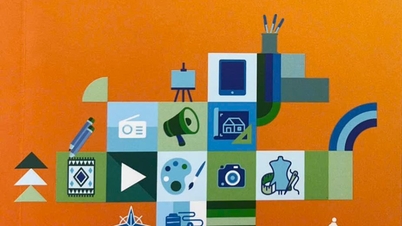
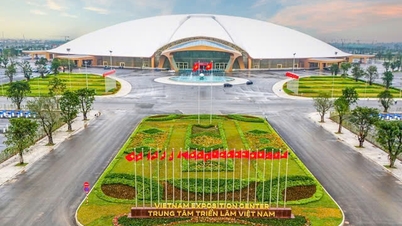
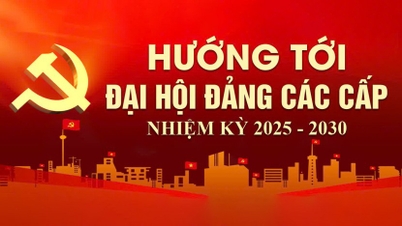


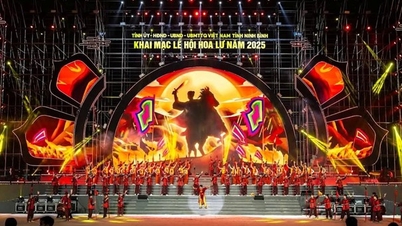




















































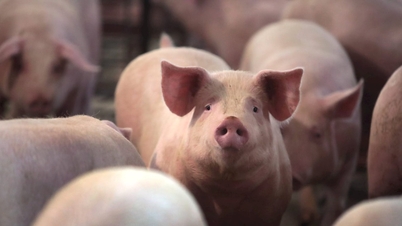

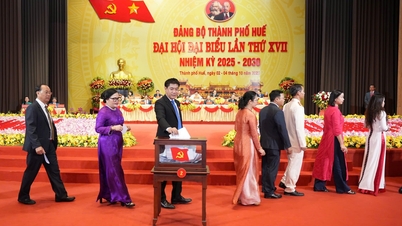

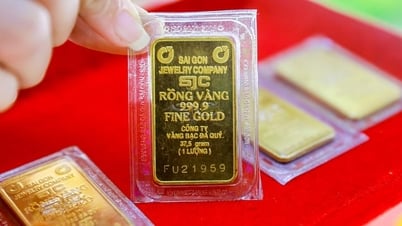

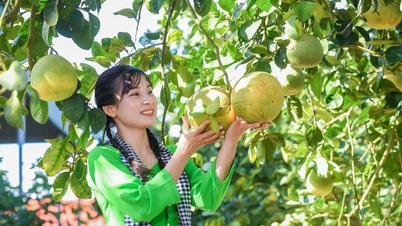
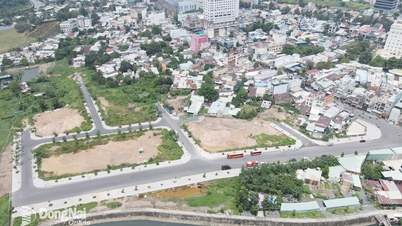

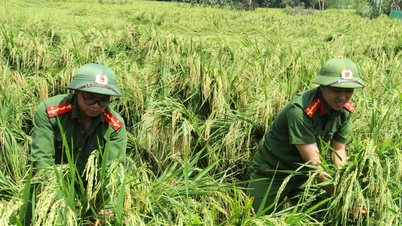












Comment (0)